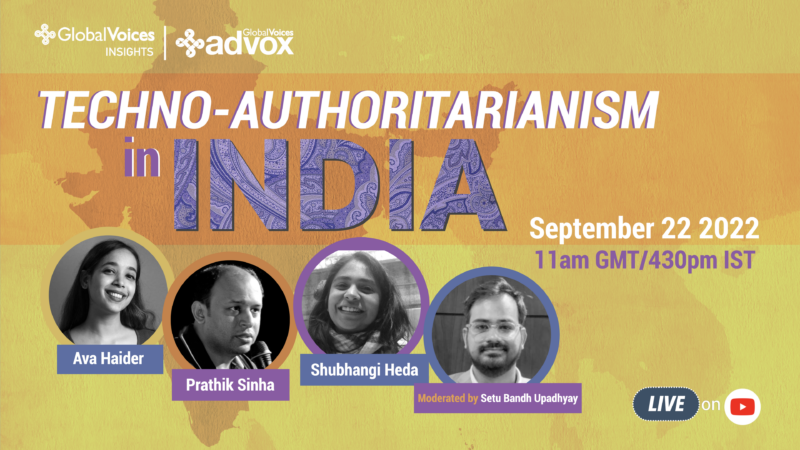
In public and appearances and speeches, Prime Minister Narendra Modi has declared this present decade India’s “Techade” — a digital revolution at the grassroots level, touching all people and “refining” all aspects of politics, economy, and society.
Yet even as the leader of the world’s largest democracy urges citizens to harness digital capacity to drive the country to a brighter future, India's rapid digitization has been accompanied by an array of digital authoritarian practices that curtail citizens’ liberties. Alongside the arrest, on trumped-up charges, of journalists and critics of the state for what they post on social media, are investigations alleging that the Indian government has used Pegasus spyware on its opponents. Twitter and the Indian state are in a legal battle over takedown requests. And all of this happens in the absence of a data protection law to uphold core freedoms such as the right to privacy.
In our recently released India country report as part of Global Voices Advox's Unfreedom Monitor project, we draw from our research to highlight incidents of digital authoritarianism in India and how they are discussed in a number of media spaces, including social media.
Join us on YouTube live on September 22 at 11 am GMT/43opm IST for a discussion about the findings of this report and how civil society actors are pushing back against these authoritarian practices. The session is free and open to the public. Register below to receive a reminder about the event:
Register for free on Eventbrite
The event will be moderated by Setu Bandh Upadhyay, technology policy and digital rights researcher and researcher for Global Voices’ Civic Media Observatory, and feature the following panelists:
- Pratik Sinha is the co-founder of Alt News, an Indian fact-checking website that is committed to debunking misinformation, disinformation and mal-information both on social media as well as mainstream media.
- Shubhangi Heda is a researcher for Global Voices’ Civic Media Observatory project and a PhD Candidate at the Queensland University of Technology. Her primary research focus has been working on issues related to media and tech policy. She has previously worked as a policy analyst on issues concerning privacy, freedom of speech and expression and data governance.
- Ava Haider is a research analyst at Aapti Institute, where her interests are in digital ecosystems of development, social advancement through technology and online forms of representation. Before joining Aapti, Ava worked as a Teaching Fellow at Ashoka University, where she taught students political theory and helped create online-friendly curriculums in the initial months of COVID-19. Through her work, she seeks to expand scholarship within the intersection of identity, politics and digitization in India.
We look forward to having you join us on Thursday, September 22 at 11am GMT/430pm IST (click here to convert to your local time zone).




